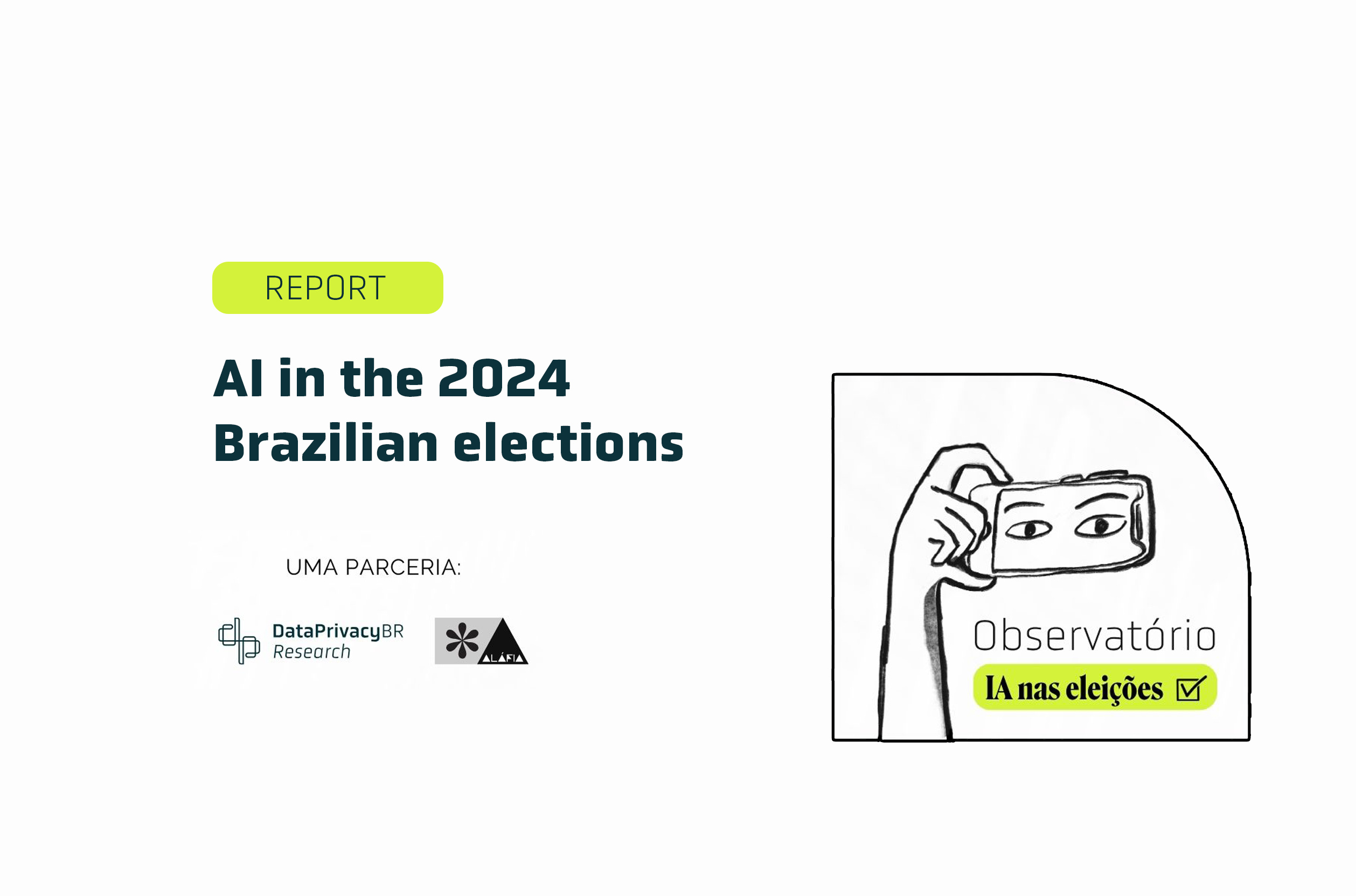Report | AI with Rights | Digital Platforms and Markets
AI in the 2024 Brazilian elections

Aláfia Lab, *desinformante and Data Privacy Brasil launch the report “AI in the 2024 Brazilian elections”, with an analysis of the use of artificial intelligence in the first round of the elections. The report is the result of the “AI Observatory in the Elections“, promoted by Data Privacy Brasil, through the AI with Rights project, in partnership with Aláfia Lab and *desinformante, which aims to map and record cases of use of generative AI during the 2024 Brazilian elections.
On October 5, 2024, more than five thousand Brazilian municipalities held elections. For the first time, an election in the country was held with the widespread and popularized presence of artificial intelligence. With this new development, the Superior Electoral Court (TSE) created specific rules to delimit the use of tools by candidates and political campaigns.
In the mapping carried out by the Observatory, it was possible to analyze that, despite the efforts of the TSE, candidates continued to use artificial intelligence without notifying the electorate. Over the past few weeks, active monitoring and searches have been carried out on digital platforms, media outlets, and fact-checking agencies to collect and document the cases identified.
However, data collected between August 16 and October 6 showed that the impression that there would be a massive use of AI in campaigns was not confirmed. Specific uses were identified and, in most cases, without major repercussions. The document also points out that the use of AI occurs both by candidates and campaigns and – sometimes even more intensely – by voters and in different media formats (image, video, and audio). Therefore, regulatory measures or public policies on the subject need to take into account different audiences and uses of the technology.
The analysis also identified that, among the main uses of AI, are: the broad application of the technology to produce jingles or to assist in the production of campaign content with little funding; the creation of deepfakes produced by the public with relatively little impact but which show the potential for misinformation in the upcoming elections; and cases of deepnudes targeting candidates in different municipalities.
In addition, the report also contains reports on the impact of AI on disinformation and the position of the Justice Department in the cases that were found. The document is already available for reading, and the Observatory will continue mapping cases in this second round. Visit the website and learn more about this work. Access the link and check out the new report.
DataPrivacyBr Research | Content under licensing CC BY-SA 4.0
